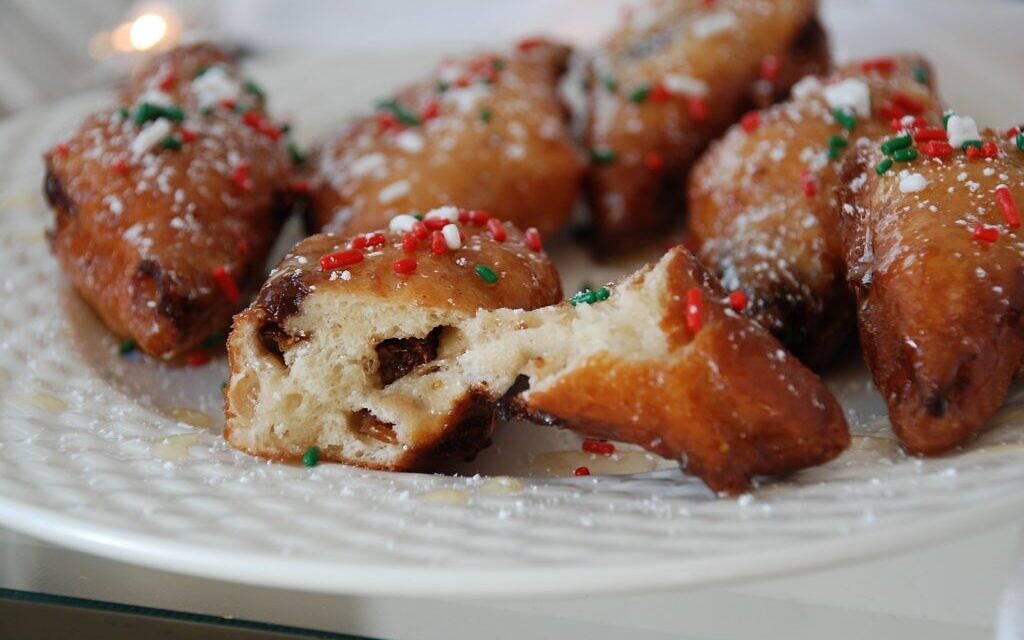Why is this doughnut different from all other doughnuts?
This Chanukah, will you be dunking your zalabi or sprinkling your fritelle? We explore delicious traditional Chanukah foods around the world
The word tradition conjures up different memories for each of us, from what we remember seeing our parents and grandparents do, to newer traditions we introduce to our own families. The wonderful thing about our diverse Jewish community is the variety of food that comes out of the many countries from which we hail. And it is for that reason that chag recipes are spun and reinvented with the same but slightly different ingredients and a new name.
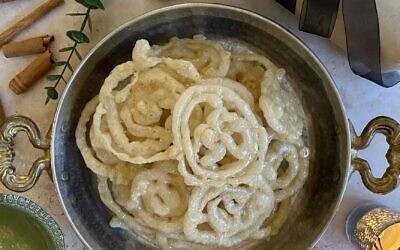
Take the zalabi, the Iraqi-Indian squiggly, sticky Chanukah treat. This is made from a yeasted batter that is fermented and put into a squeezy bottle before being dribbled into hot oil to create its unique shape. Dunk it into a rich, sweet syrup flavoured with rosewater or orange blossom water to eat. The Iraqis call the same thing a zengoula (funnel cake) as the batter is poured through a funnel into the hot oil, while the Syrians, who vary the shape by pouring it into balls, call it zalabia. The syrup that the Syrians use is shira – thicker than the rest and never flavoured with rose.
Frittelle di Chanukah, aka Chanukah fritters with figs and sambuca honey, are a staple for Italian Jews. During the festival in Italy there aren’t many potato latkes, but there are fritters of all kinds, and a bread-like fritter with anise, olive oil and dried fruit and honey is a Jewish-Italian classic. The dough is left to rise overnight before frying and is then covered with sprinkles in red, white and green – colours of the Italian flag. Another updated Italian classic is the pasta latke, which is gaining in popularity.
Get The Jewish News Daily Edition by email and never miss our top stories Free Sign Up
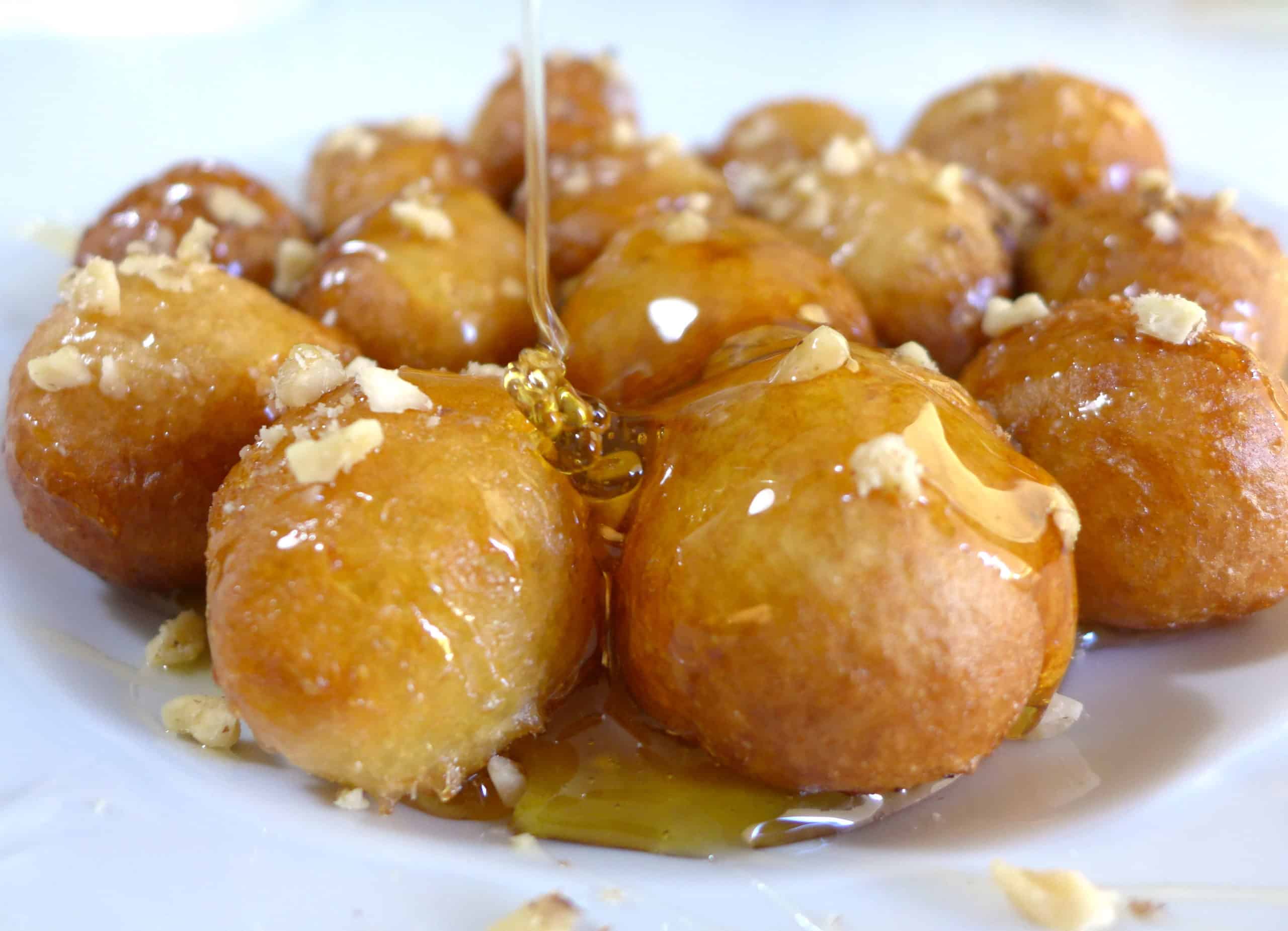
The Greeks are partial to loukoumades, delicious doughnuts drizzled with honey, which have a fascinating history that began in ancient Greece, where they were served to the winners of the first Olympic Games in 776 BC, thus earning the nickname ‘honey tokens’.
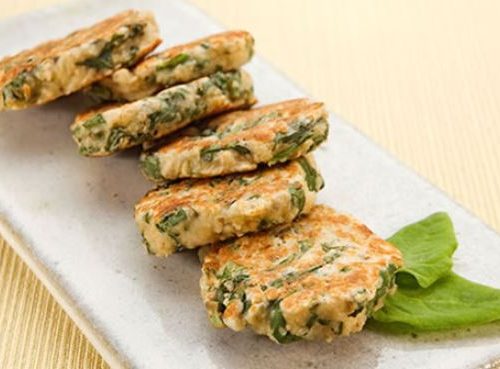
Traditionally known for being on the Sephardi seder plate at Rosh Hashanah, keftes de espinaca (spinach patties) and keftes de prasa (leek patties) are a delicious alternative to the customary latke. Sliced leeks are sautéed and cooled before being folded into a light batter of flour, water and,sometimes, an egg before being fried in batches. The spinach version is the same, and sometimes the two can be mixed. I prefer to use frozen spinach that has been thawed and chopped. Totally moreish and four or five can easily be devoured at once!
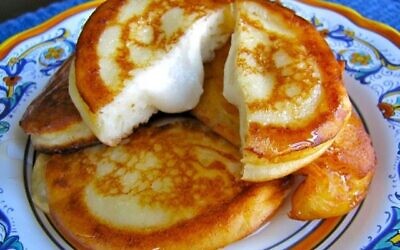
Cassola (sweet cheese pancakes) are said to be the original latkes. After the Spanish expelled the Jews from Sicily, the exiles introduced their ricotta cheese pancakes, known in Rome as cassola, to the Jews of northern Italy.
Another variation on the delicious doughnut we know and love are the bimuelos, which are puffed and served with an orange glaze, and originate in Spain. In Mexico, the buneolos – meaning fritters – are more or less the same and one of the foods emblematic of Marrano Jews, who were forced to convert. Often sprinkled with cinnamon sugar, they have also been dipped in guava syrup.

For the Spanish Jews who relocated to Morocco during the inquisition, the bimuelos evolved into the sfenj, which, in recent years, have become a popular alternative to the regular jam doughnut we know and love in Europe. Knobbly, spongy doughnuts, dusted in sugar and shaped as a ring, they are often made by street vendors, who serve them tied in ribbon or layered up on a skewer and sold directly on the street. Once shrouded in secrecy by grandmas across the globe, the internet has made these wonderful diverse recipes available to all.
Happy Chanukah!

Thank you for helping to make Jewish News the leading source of news and opinion for the UK Jewish community. Today we're asking for your invaluable help to continue putting our community first in everything we do.
For as little as £5 a month you can help sustain the vital work we do in celebrating and standing up for Jewish life in Britain.
Jewish News holds our community together and keeps us connected. Like a synagogue, it’s where people turn to feel part of something bigger. It also proudly shows the rest of Britain the vibrancy and rich culture of modern Jewish life.
You can make a quick and easy one-off or monthly contribution of £5, £10, £20 or any other sum you’re comfortable with.
100% of your donation will help us continue celebrating our community, in all its dynamic diversity...
Engaging
Being a community platform means so much more than producing a newspaper and website. One of our proudest roles is media partnering with our invaluable charities to amplify the outstanding work they do to help us all.
Celebrating
There’s no shortage of oys in the world but Jewish News takes every opportunity to celebrate the joys too, through projects like Night of Heroes, 40 Under 40 and other compelling countdowns that make the community kvell with pride.
Pioneering
In the first collaboration between media outlets from different faiths, Jewish News worked with British Muslim TV and Church Times to produce a list of young activists leading the way on interfaith understanding.
Campaigning
Royal Mail issued a stamp honouring Holocaust hero Sir Nicholas Winton after a Jewish News campaign attracted more than 100,000 backers. Jewish Newsalso produces special editions of the paper highlighting pressing issues including mental health and Holocaust remembrance.
Easy access
In an age when news is readily accessible, Jewish News provides high-quality content free online and offline, removing any financial barriers to connecting people.
Voice of our community to wider society
The Jewish News team regularly appears on TV, radio and on the pages of the national press to comment on stories about the Jewish community. Easy access to the paper on the streets of London also means Jewish News provides an invaluable window into the community for the country at large.
We hope you agree all this is worth preserving.
-
By Brigit Grant
-
By Laurent Vaughan - Senior Associate (Bishop & Sewell Solicitors)
-
By Laurent Vaughan - Senior Associate (Bishop & Sewell Solicitors)
-
By Laurent Vaughan - Senior Associate (Bishop & Sewell Solicitors)
-
By Laurent Vaughan - Senior Associate (Bishop & Sewell Solicitors)


